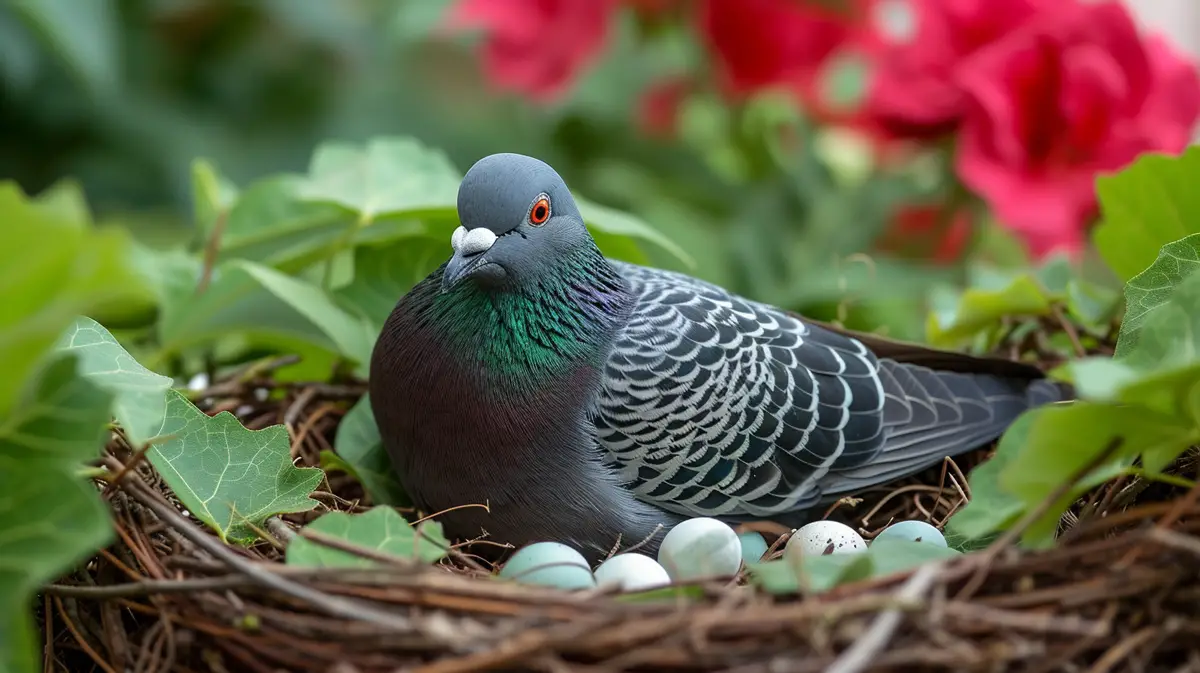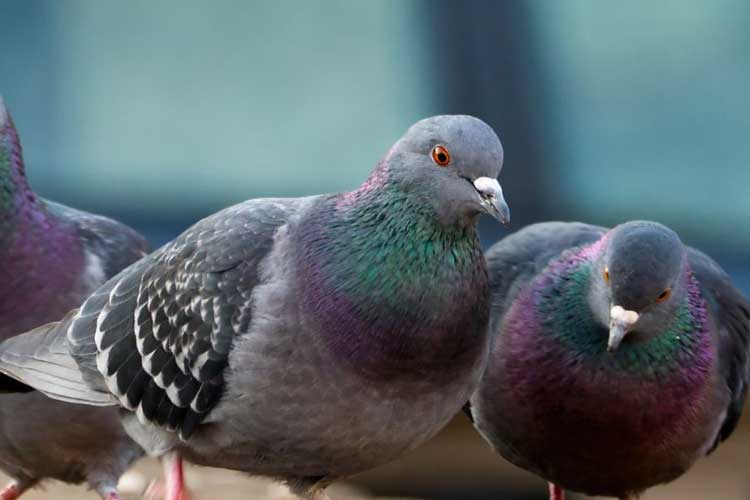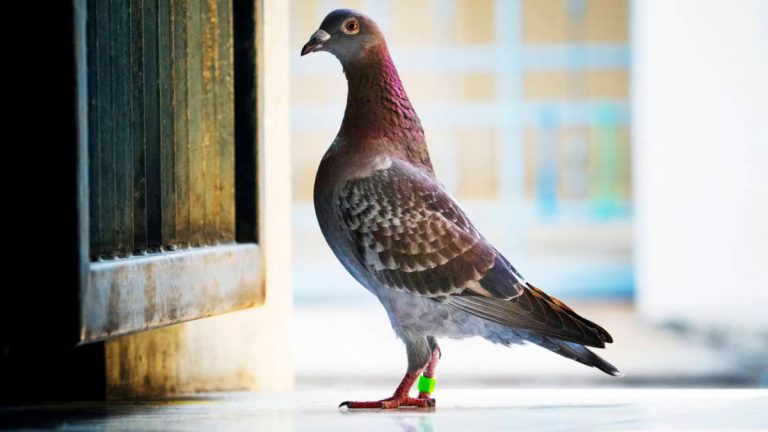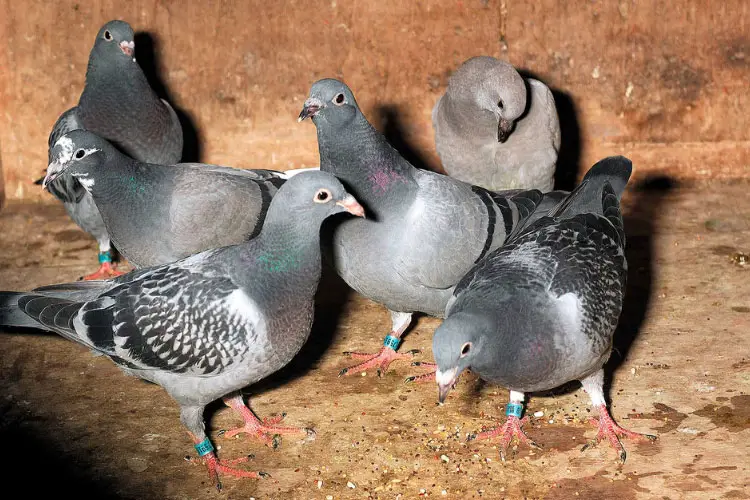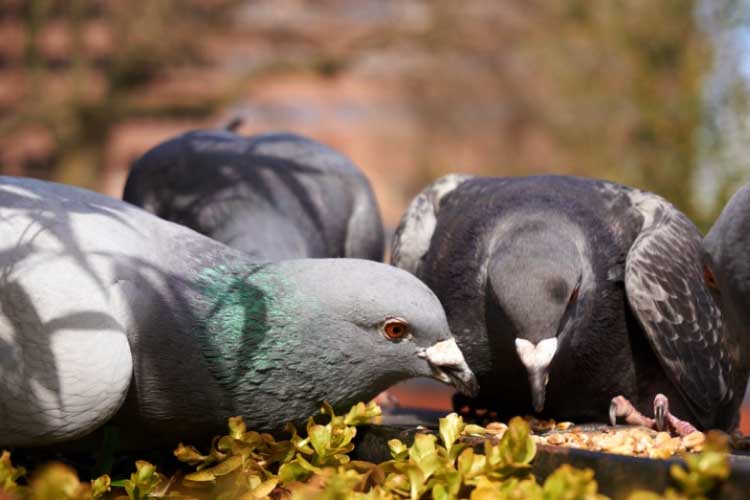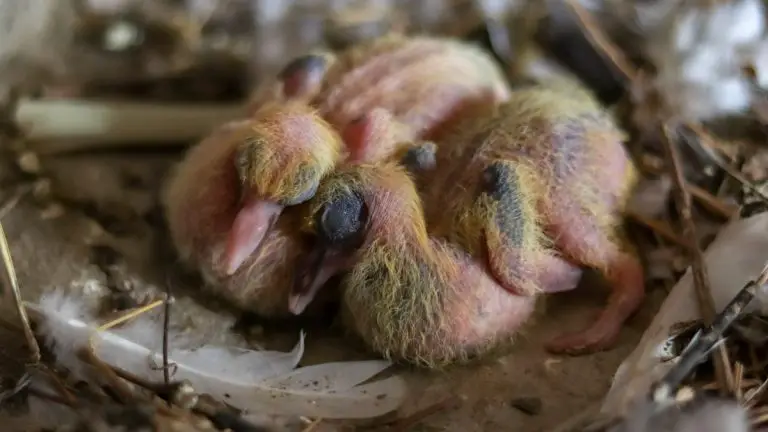Pigeon Egg Facts: How Many Eggs Do Pigeons Lay?
Pigeons, those ubiquitous birds that grace our city streets and park benches, have always intrigued me. From their distinctive cooing to their graceful flight, there’s something captivating about these feathered creatures. But have you ever wondered how many eggs pigeons lay? Well, today I’m here to shed some light on this fascinating topic. So, grab a cup of coffee and let’s dive into the world of pigeon reproduction.
Pigeon Reproduction: How Many Eggs Do Pigeons Lay?
Pigeons are fascinating creatures, and one aspect of their life cycle that piques my curiosity is their reproduction. In this section, I’ll delve into the question of how many eggs pigeons lay and shed light on this interesting topic.

Pigeons are known for their prolific egg-laying abilities. When it comes to reproduction, pigeons are quite efficient. The average number of eggs a female pigeon lays in a single clutch is generally two, and occasionally three. This means that a pair of pigeons can potentially produce multiple clutches of eggs throughout the breeding season.
The breeding season for pigeons typically starts in the spring and can last until early autumn. During this time, pigeons engage in courtship behaviors, such as cooing, bowing, and puffing up their feathers. Once a pair has formed, they will build a nest together.
Pigeon nests are generally simple structures made of twigs and other small debris. Pigeons are resourceful in finding materials for their nests, and they often reuse the same nest multiple times. The female pigeon will lay her eggs in the nest, typically one day apart. After laying each egg, she will incubate them to keep them warm and aid in their development.
The incubation period for pigeon eggs is around 17 to 19 days. Both the male and female pigeons take turns incubating the eggs, with each taking shifts to ensure that the eggs are kept at the optimal temperature. Once hatched, the chicks will stay in the nest and rely on their parents for food and care.
It’s important to note that not all pigeon eggs will result in successful hatching. Factors such as predation, adverse weather conditions, or developmental issues can affect the outcome. However, pigeons are known for their resilient nature, and the pairs will often try again if a clutch doesn’t hatch successfully.
Understanding the reproductive habits of pigeons provides us with a glimpse into the fascinating world of these birds. From their efficient egg-laying abilities to the dedicated care they provide to their young, pigeons truly showcase the wonders of nature.
Stay tuned for the next section, where we will explore the life cycle of pigeon chicks and how they grow into independent birds.
Understanding Pigeon Breeding Habits
Pigeons are fascinating creatures when it comes to their breeding habits. As someone who has studied these birds for years, I can share some insights into their reproductive behaviors. Let’s dive into the world of pigeon breeding:
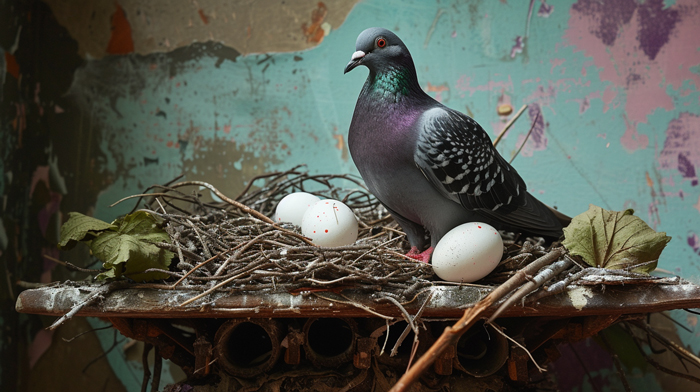
1. Courtship and Nest Building
In the spring, pigeons enter their breeding season, which can last until early autumn. During this time, they engage in courtship behaviors to attract a mate. The male pigeon will often puff up its chest, coo, and strut around the female to demonstrate its interest.
Once a pair has formed, the next step is nest building. Pigeons are resourceful builders and will use whatever materials they can find, such as twigs, leaves, and even trash. The nest is often built in a sheltered spot, such as on ledges, in tree cavities, or under bridges.
2. Egg Laying and Incubation
One of the remarkable aspects of pigeon breeding is their ability to lay eggs. On average, a female pigeon will lay two eggs in a clutch, although it’s not uncommon for a clutch to have three eggs. These eggs are typically laid one day apart.
Both the male and female pigeons take turns incubating the eggs. They exchange shifts to ensure that the eggs are kept warm and protected. The incubation period lasts around 17 to 19 days, during which the parents diligently care for the eggs.
3. Hatching and Parental Care
When the eggs hatch, it’s an exciting moment for both the pigeons and enthusiasts like myself. The newly hatched chicks are called squabs and are completely dependent on their parents for food and care.
Pigeon parents produce a special “pigeon milk” in their crops, which they regurgitate to feed their young. This milk is rich in nutrients and plays a crucial role in the chicks’ growth and development.
4. Resilience and Second Chances
Not all eggs will successfully hatch, and not all squabs will survive. However, pigeons are resilient creatures and often try again if their first attempt is not successful. This resilience is a testament to their adaptability and persistence in the face of challenges.
Understanding pigeon breeding provides a glimpse into the wonders of nature. From courtship and nest building to egg laying and parental care, these birds exhibit remarkable behaviors that contribute to their survival and species’ success.
What Influences Pigeon Egg Production?
When it comes to pigeon egg production, several factors can influence the number of eggs a pair of pigeons will lay. As an expert blogger with years of experience writing high-quality articles, I will provide you with insights on what influences pigeon egg production.
- Age of the Pigeon: Younger pigeons tend to lay fewer eggs compared to older, more experienced ones. It takes time for pigeons to mature and reach their peak reproductive age. Generally, pigeons start breeding at around six to eight months, but their egg production increases as they get older.
- Nutrition: A well-balanced diet plays a vital role in pigeon egg production. Pigeons need a variety of nutrients, including proteins, carbohydrates, vitamins, and minerals, to support their reproductive health. Ensuring that pigeons have access to high-quality feed and fresh water can positively impact egg production.
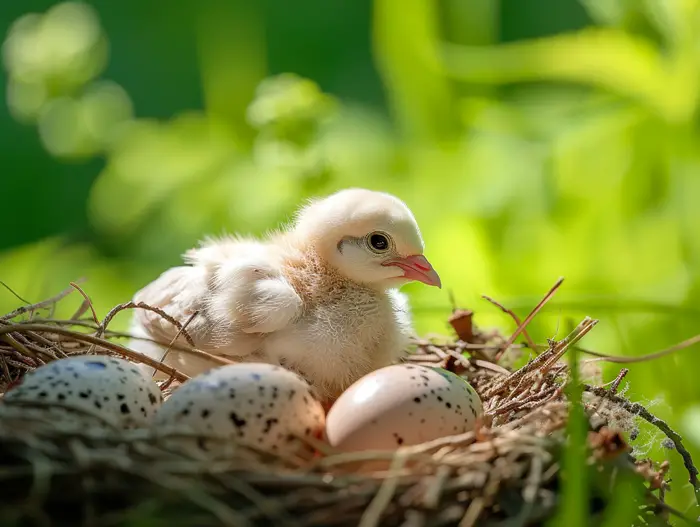
What Influences Pigeon Egg Production?
- Age of the Pigeon
- Nutrition
- Environmental Cues: Pigeon egg production is influenced by environmental factors such as daylight duration and temperature. Pigeons typically breed during spring when the days are longer, and there is an abundance of food. The availability of nesting sites and favorable weather conditions also contribute to their breeding success.
- Genetics: Like any other living organism, genetics plays a significant role in pigeon egg production. Certain pigeon breeds are known to have higher fertility rates and lay more eggs compared to others. Selective breeding practices can help improve egg production in specific pigeon breeds.
- Health and Stress Levels: Pigeons that are healthy and free from stress are more likely to have higher egg production. Health issues, such as infections or parasites, can negatively impact egg production. Similarly, stressful conditions, such as overcrowding or disturbance, can interfere with the pigeon’s ability to lay eggs.
Understanding the factors that influence pigeon egg production is crucial for pigeon breeders and enthusiasts. By providing the right conditions, nutrition, and care, breeders can maximize egg production and ensure the overall well-being of their pigeons.
Size and Characteristics of Pigeon Eggs
When it comes to the size and characteristics of pigeon eggs, there are a few key factors to consider. Pigeon eggs are relatively small, typically measuring around 2.5 to 3 centimeters in length and 1.8 to 2.2 centimeters in width. However, it’s important to note that there can be some variation in these measurements.
The eggs are usually smooth and have a glossy appearance. The color of pigeon eggs can vary, ranging from white to cream to light blue. This variation in color is due to the pigments present in the shell.
Pigeon eggs have a hard shell that provides protection and allows them to withstand the weight of the incubating parent. The shell is composed of calcium carbonate, which gives it its strength. This is essential for the survival of the developing embryo inside.
It’s interesting to note that pigeons typically lay two eggs in a clutch, although there are occasions when they may lay three. The eggs are laid a day or two apart. The reason for this staggered laying is to ensure that the eggs hatch at different times, reducing the chances of the entire clutch being lost to predators or other threats.
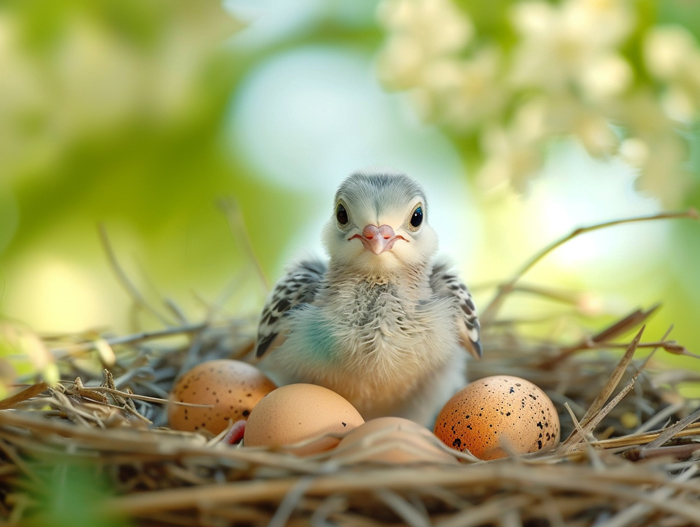
The incubation period of pigeon eggs lasts around 17 to 19 days. Both the male and female take turns incubating the eggs. This shared responsibility allows for rest breaks and helps ensure the eggs are kept at a consistent temperature for proper development.
During this incubation period, the parents exhibit remarkable dedication and care. They provide warmth, protection, and nourishment to the growing embryos. Once the eggs hatch, the parents continue to provide food for their chicks until they are old enough to fend for themselves.
Understanding the size and characteristics of pigeon eggs gives us a glimpse into the incredible process of pigeon reproduction. It’s fascinating to see how these small, delicate eggs eventually give rise to the next generation of resilient and adaptable pigeons.
The Role of Incubation in Pigeon Egg Development
During the incubation period, both male and female pigeons take turns warming the eggs and ensuring their proper development. This shared responsibility plays a crucial role in the successful hatching of pigeon eggs. Let’s explore the importance of incubation in pigeon egg development.
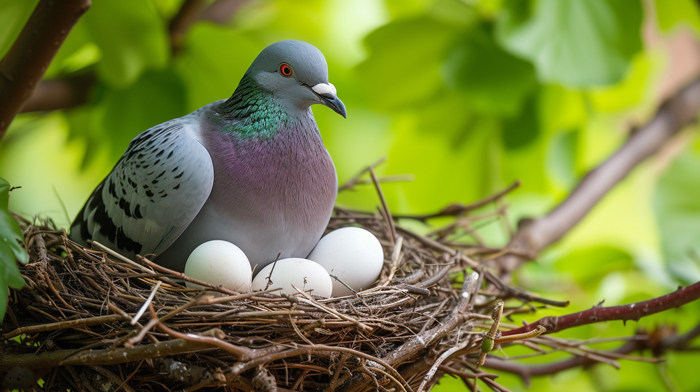
1. Maintaining Optimal Temperature:
Incubation is essential for maintaining the ideal temperature for egg development. Pigeons instinctively know that eggs need warmth to grow. They use their body heat to keep the eggs at a consistent temperature, typically around 98.6 degrees Fahrenheit (37 degrees Celsius). This warmth stimulates the growth of embryos inside the eggs.
2. Promoting Proper Oxygen Supply:
During incubation, pigeons also ensure that the eggs receive a sufficient supply of oxygen. Pigeon eggs have small pores in the shell that allow oxygen to enter and carbon dioxide to exit. By sitting on the eggs, the pigeons facilitate the exchange of gases, ensuring that the growing embryos receive the necessary oxygen for their development.
3. Protecting the Eggs:
Incubation helps protect the vulnerable eggs from potential harm. The parents’ presence deters predators, such as rats or other birds, that may attempt to eat or destroy the eggs. Additionally, the pigeons’ constant vigilance allows them to quickly respond to any threats, ensuring the safety of their precious offspring.
4. Providing Nourishment for Proper Growth:
During incubation, both male and female pigeons may temporarily leave the nest to forage for food. However, they ensure that the eggs are never left unattended for too long, as this could jeopardize their development. The parents regurgitate crop milk, a nutritious secretion, to feed the growing embryos, providing them with essential nutrients for healthy growth.
5. Maintaining Moisture Levels:
Incubation also helps to maintain proper moisture levels within the eggs. Pigeons transfer moisture from their warm bodies to the eggs, preventing them from drying out. This moisture is vital for the development of the embryos and the overall health of the eggs.
Conclusion
Understanding the breeding habits of pigeons provides valuable insights into their remarkable behaviors and successful survival as a species. From courtship rituals to nest-building and incubation, pigeons exhibit dedication and care throughout the reproductive process.
During the breeding season, male pigeons demonstrate their interest through various courtship behaviors, such as puffing up their chests and cooing. Once a pair has formed, they build a nest using different materials. The female pigeon typically lays two eggs in a clutch, occasionally three, and both parents take turns incubating the eggs for around 17 to 19 days.
Pigeon eggs, characterized by their size, appearance, and shell composition, play a crucial role in the reproductive process. The staggered laying of eggs and shared responsibility of incubation between the male and female pigeons contribute to the successful development of the eggs.
Incubation is essential for maintaining optimal temperature, promoting proper oxygen supply, protecting the eggs from harm, providing nourishment for growth, and maintaining moisture levels. The dedication and care exhibited by the parents during this period are vital for the healthy development of the chicks.
By understanding the factors that influence pigeon egg production, we gain a deeper appreciation for the resilience and adaptability of these fascinating birds. Pigeons’ ability to adapt to various environments and their commitment to reproduction contribute to their continued success as a species.
